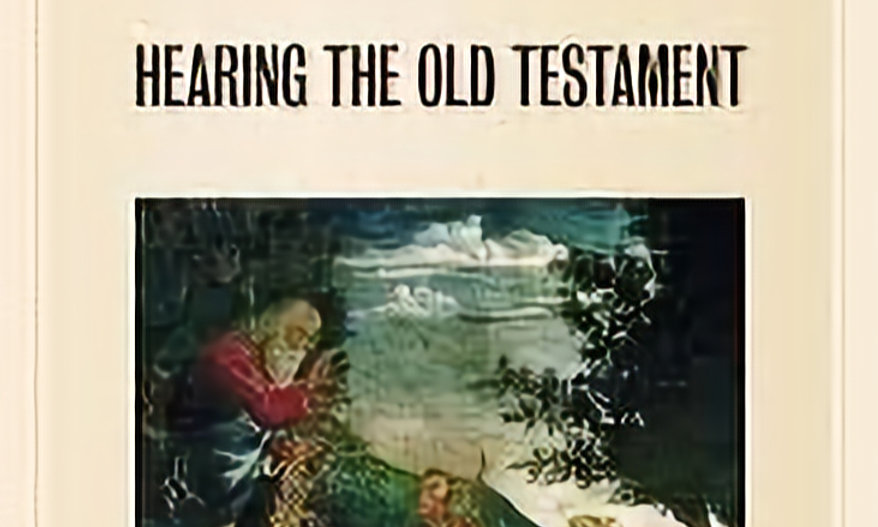
Bartholomew & Beldman, “Hearing the Old Testament”
0
2
0

Craig G. Bartholomew & David J. H. Beldman, eds. Hearing the Old Testament: Listening for God's Address (2012)
Book Review: This is an edited volume, including articles from 14 top scholars of the Old Testament. Bartholomew and Beldman, the project editors, lead the reader through a theological and hermeneutical journey exploring how to hear and respond to God's voice through the Old Testament. The book emphasizes the theological and practical significance of the Old Testament, encouraging readers to engage deeply with the text. It covers a range of topics, including biblical theology, literary approaches, and contemporary application. This work aims to enrich personal and communal understanding of the Old Testament as a vital part of Christian faith and practice.
The contributors of this insightful work approach the Old Testament with reverence for its authority and an understanding of its foundational role in the Christian faith. They emphasize that the Old Testament is not merely a historical document but a living word through which God continues to speak. The multifaceted and multidisciplinary approach is beneficial for readers who seek a holistic understanding of Scripture. The emphasis on hearing God's address through the text highlights the relational aspect of biblical engagement, encouraging believers to listen and respond to God's voice in their daily lives. It offers profound insights into the Old Testament, fostering a deeper appreciation for its theological depth and practical relevance. This book is a must-read for those committed to hearing and responding to God's word through the Old Testament.
Here are a few helpful emphases from this book:
1. Theological Emphasis: The book emphasizes the theological significance of the Old Testament. The contributors view the Old Testament as a vital part of Christian theology.
2. Diverse Perspectives: The collection includes essays from various scholars, each bringing different perspectives and expertise. These areas include ancient history, philosophy, literary and language studies, hermeneutics, and theology. This diverse, multifaceted approach is a stimulating way to interpret the Old Testament.
3. Literary and Theological Approaches: The book explores both literary and theological approaches to the Old Testament. In other words, the theological message of the OT is integrally dependent on the literary nature and structures of the OT.
4. Hearing God's Address: A central theme is the idea of "hearing God's address" through the Old Testament. This is an active and personal engagement with the God of scripture through the written word.
5. Contemporary Application: Most of the essays aim to connect the Old Testament to contemporary Christian life. While ancient and far removed from modern readers, the OT does have value and serves a practical role in the life of genuine faith.
6. Canonical and Redemptive Context: The book places the Old Testament within the broader canonical and redemptive context of the Bible. The Old Testament is intimately related to the New Testament and the overall narrative of Scripture, particularly as God unveils his plan of salvation.
7. Accessible Scholarship: While the book is scholarly in its foundation, it is accessible to those with some familiarity with OT studies and biblical theology. It is a valuable resource for any library but may be more advanced in language than the typical Bible student is prepared to understand.






